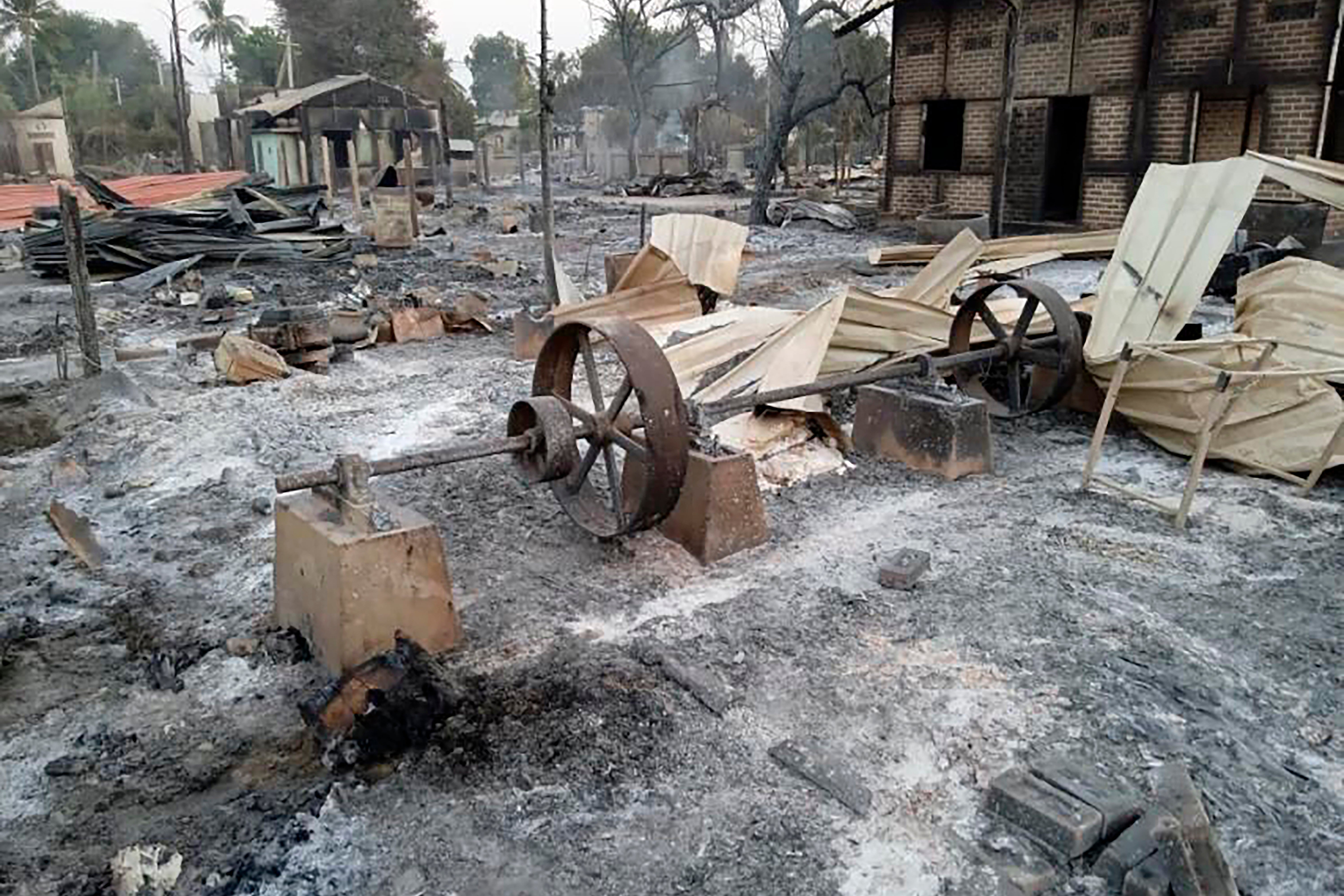Investigators say Myanmar's military is committing increasingly brazen war crimes
A group of investigators says Myanmar’s military and affiliated militias are committing increasingly frequent and brazen war crimes, including aerial bombings targeting civilians

Your support helps us to tell the story
From reproductive rights to climate change to Big Tech, The Independent is on the ground when the story is developing. Whether it's investigating the financials of Elon Musk's pro-Trump PAC or producing our latest documentary, 'The A Word', which shines a light on the American women fighting for reproductive rights, we know how important it is to parse out the facts from the messaging.
At such a critical moment in US history, we need reporters on the ground. Your donation allows us to keep sending journalists to speak to both sides of the story.
The Independent is trusted by Americans across the entire political spectrum. And unlike many other quality news outlets, we choose not to lock Americans out of our reporting and analysis with paywalls. We believe quality journalism should be available to everyone, paid for by those who can afford it.
Your support makes all the difference.Myanmar’s military and affiliated militias are committing increasingly frequent and brazen war crimes, including aerial bombings targeting civilians, a group of investigators established by the United Nations said Tuesday.
The Independent Investigative Mechanism for Myanmar, or IIMM, said it found strong evidence during the 12 months ending in June that the army and militias indiscriminately and disproportionately targeted civilians with bombs, mass executions of people detained during operations and large-scale burning of civilian houses.
The group, which was established by the U.N. Human Rights Council in 2018 to monitor violations of international law in Myanmar, said it is collecting evidence that can be used in future prosecutions of those responsible.
“Every loss of life in Myanmar is tragic, but the devastation caused to whole communities through aerial bombardments and village burnings is particularly shocking,” said Nicholas Koumjian, head of the group. “Our evidence points to a dramatic increase in war crimes and crimes against humanity in the country, with widespread and systematic attacks against civilians, and we are building case files that can be used by courts to hold individual perpetrators responsible.”
Myanmar has been in turmoil since the military seized power from the elected government of civilian leader Aung San Suu Kyi in February 2021, triggering mass nonviolent protests which were suppressed with lethal force. Opponents of military rule then took up arms and large parts of the country are now embroiled in conflict, in what some U.N. experts have characterized as a civil war.
The Assistance Association for Political Prisoners, a rights monitoring organization, says security forces have killed at least 3,900 civilians and arrested 24,236 others since the military takeover.
The military-installed government has increasingly launched offensives in the countryside to counter armed opposition to its rule and has tried to secure territory by conducting airstrikes and burning villages, displacing many thousands of people. The resistance forces have limited weapons and no defense against air attacks.
In April, the military dropped a bomb that the group Human Rights Watch said was an “enhanced blast” munition known as a fuel-air explosive in an attack on Pazigyi village in Sagaing region that killed more than 160 people, including many children.
The attack targeted a ceremony for the opening of a local office of the National Unity Government, the main nationwide opposition organization that considers itself to be Myanmar’s legitimate administrative body.
In response to accusations of abuses, the military government often accuses members of the pro-democracy People’s Defense Forces, the armed wing of the National Unity Government, of terrorism against government-related targets.
IIMM said in a report that the military should have known, or did know, that large numbers of civilians were present at the time of some of its attacks.
It said the incidents it investigated occurred particularly in the Sagaing and Magway regions and in Chin, Karen and Kayah states, the major strongholds of armed resistance to the ruling military.
The group said it based its findings on photographs, videos, audio material, documents, maps, geospatial imagery, social media posts and forensic evidence from 700 sources, including more than 200 eyewitness accounts.
There is no information that Myanmar authorities have investigated any military or civilian official for war crimes or crimes against humanity, and the ignoring of such crimes may indicate that higher authorities intended for them to be carried out, the report said.
The IIMM said it is continuing to actively investigate the violence, including sexual and gender-based crimes, committed by the military against the Rohingya Muslim minority in 2017.
More than 700,000 Rohingya have fled the country to neighboring Bangladesh since August 2017 to escape a brutal military counterinsurgency campaign following an attack by an insurgent group in Rakhine state.
Myanmar’s government has rejected accusations that security forces committed mass rapes and killings and burned thousands of homes in the campaign. The U.S. government has labeled the military's actions as genocide.
“Sexual and gender-based crimes are amongst the most heinous crimes that we are investigating,” Koumjian said. “These were so pervasive during the Rohingya clearance operations that most witnesses we have interviewed have relevant evidence about this.”